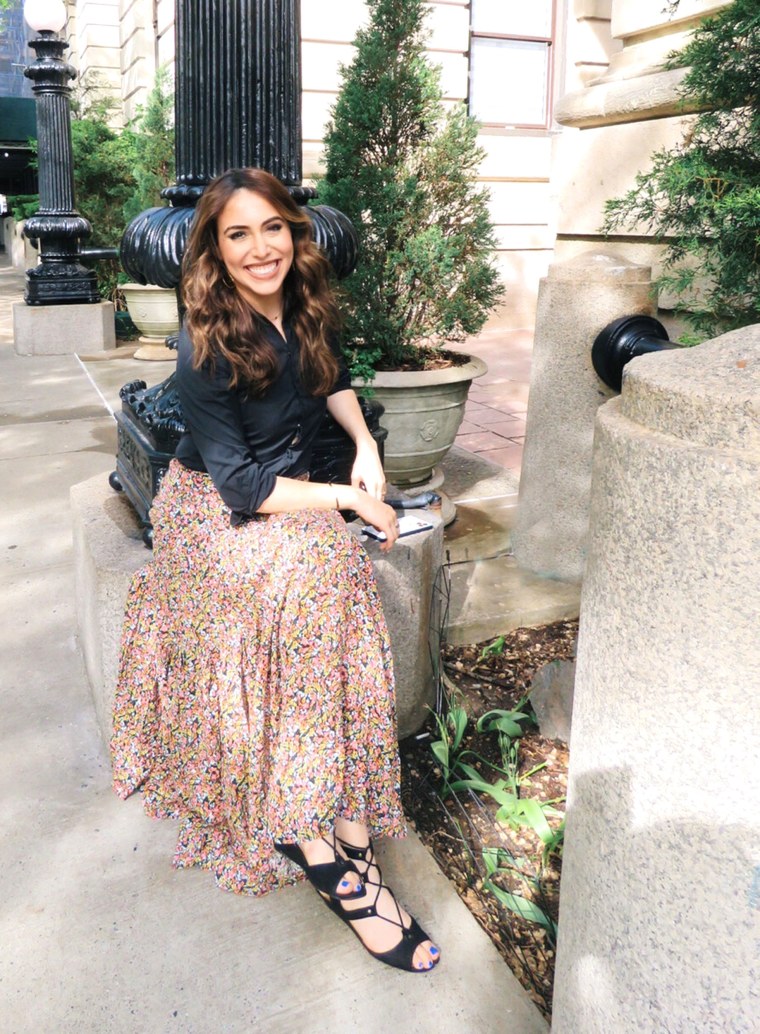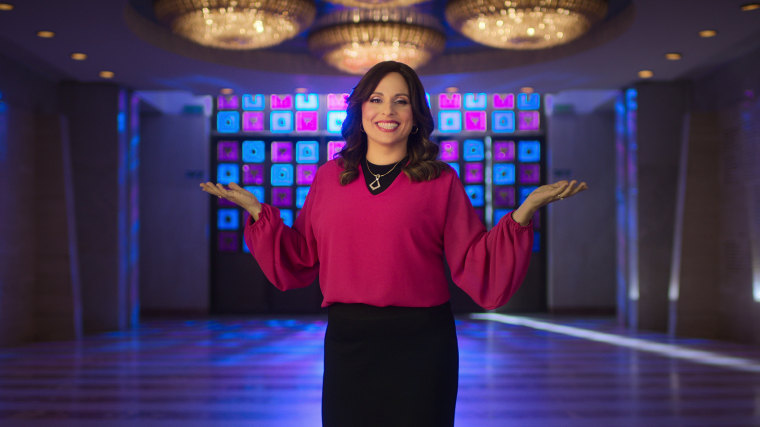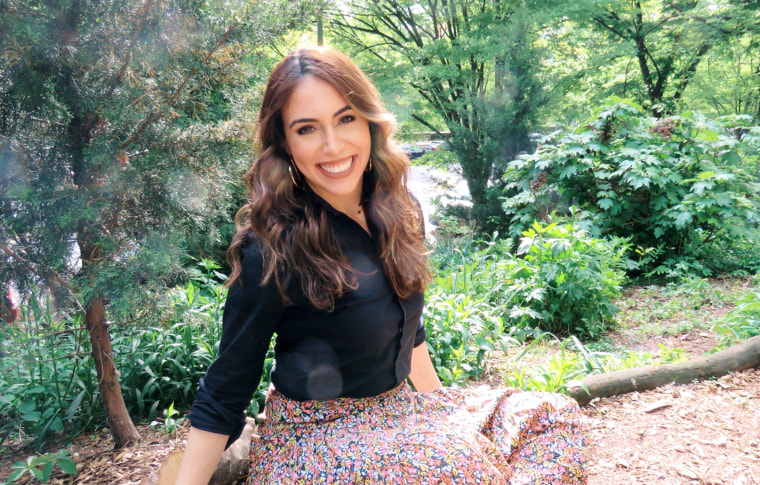When I heard that Netflix was creating a show about the Jewish matchmaking process, I was excited. I thought it was a chance for the world to see the beauty of our traditions, and counteract recent negative portrayals (see: “My Unorthodox Life”).
So, naturally, I binge-watched “Jewish Matchmaking” in a day. In “Jewish Matchmaking,” Israel-based matchmaker Aleeza Ben Shalom — who is Orthodox, like me — sets up Jewish people from around the world. A lot of the show resonated with me, but didn’t quite capture the whole story of what it’s like to date as an Orthodox Jewish woman.
Growing up in Michigan as the only girl in a family of four kids, I had a sense of the path I would follow. My community is family and children-oriented. One day, I knew I was going to be a wife and a mother, with a traditional career that would enable me to raise children and be a supportive spouse, all while balancing my own goals — I’m an entrepreneur with an MBA and started a makeup company.

Looking ahead, I knew there was a good chance a matchmaker would set me up with my future husband. When it comes to dating in my community, there is almost always a go-between for a couple, whether it’s a matchmaker like Aleeza, friends or parents, or simply going to Shabbat dinner. My parents, for example, met via a rabbinic couple in their community. Most people in the mainstream Orthodox community use matchmakers.
The marriages are “arranged,” but there is a lot of choice in the process. It’s more like arranged dating. People have a say in who they date and marry. The purpose of the matchmaker, in a nutshell, is to seek out appropriate matches from their network based on individuals' qualifications, values, and lifestyle, and then facilitate a match — but it’s up to initials who we date and ultimately marry. Attraction is extremely important to Jewish marriage and law, and there must be mutual attraction from both sides.

When I turned 19, my mom and I started meeting with matchmakers for potential matches. Similar to what Aleeza asks in the show, our conversations got deep, fast.
Many of the questions are related to Orthodox culture, like: What is your modesty level? Do you want your husband to do Torah studies? Do you have a preference as to how many times a day your husband prays? Would you be willing to compromise on the amount of time? But we also go over more basic questions like the character traits we’re looking for and the TV shows we watch (and if we want a TV in our homes at all).
The reason we ask these questions is to make sure our value systems are aligned. It’s better to be honest at the start. If you’re not, it can backfire once you enter into a relationship, since we’re marriage-minded.
After speaking to me, the matchmaker would take my resume (called a shidduch resume), which is a one-sheet about my background — sort of like a job, but for dating — with information about my age, where I grew up, education, camps I went to, volunteer work, details about my siblings and parents, and a list of and references who could vouch for my character.
Later, she would present me with potential matches’ resumes of men who had already said yes to me. As I got older, I started wanting to screen potential matches before they saw my resume — everyone has their preferences.
The show definitely put more of an emphasis on looks than we do in real life. Looks are only a small part — we emphasize values, lifestyle, character, and personality are the factors that we put the most emphasis on when it comes to a match. Not the size or shape of a person’s eyebrows (if you know, you know).
One thing I like about the way we date is that it’s efficient. For example, my brother, who is studying to be a rabbi, worked with matchmakers who knew women who wanted to marry rabbis. He got engaged to the third woman he went out with after about a month; today, they’re married with kids!
The efficiency is possible because we are transparent from the start. We always date with the intention of marriage. So, we discuss details that will have a big effect. If we’re not aligned, we know right away, and the relationship is over. It doesn’t take months, or years, to figure this out, the way it often happens in the secular world.
Another upside of the matchmaker is there’s no ghosting: You always hear back, even if the other person doesn’t want to move forward. There’s no waiting by the phone for days, wondering if the other person is interested in going on another date. The matchmaker makes sure to facilitate and move things along, whether it’s to continue or end a relationship. Rejection is more dignified. The matchmaker will try to soften the “no.” People feel like human beings.
The dates definitely look different than what many readers might be used to. Like the show touches on the idea of “shomer negiah,” which is essentially not touching the opposite sex (unless they are your immediate relative) until you’re married. Not everyone does this, things shift as you evolve and develop a relationship, but everyone has their own levels and boundaries.
Other parts of dating are definitely familiar to people outside of the community: You don’t always click with who you’re sitting across the table from. I remember being bored — really bored — by someone telling me stories of great rabbis for the whole first hour. I’ve had dates where I felt that I had to fake laugh for an hour so I wouldn’t make the guy feel bad. That’s a downside of the matchmaker: They rule people out for you, which is why I’ve also relied on friends, gone to events, and met potential matches through shabbat meals and parties.
So, how has my dating journey turned out? Well … it’s still going. About 10 years later, I’ve learned a lot about myself and staying true to my values — even if it means going against the norm.
Like cast member Fay Brezel says in the show, there is a stigma that comes with being older (as in, late 20s and beyond) and single — the topic of conversation always goes back to my relationship status. Not everyone should be, or wants to be married at 19 or 20, and have four kids at 30, just because that’s typical in our community.
My goal is to still get married. But until that happens, I want to be an example for what it looks like to be single as an Orthodox woman. The community teaches us how to get married but not how to live your life as a single individual when you don’t get married right away.
I’ve also been growing a business, beauty brand and podcast, and building my confidence and status. I don’t regret any of the decisions I’ve made. Ultimately I believe things happen for a reason. I’m on my path, and we all grow and evolve at our own place. After many blind dates … I can see myself more clearly than ever!
Nechami Tenenbaum, MBA, is the Founder & CEO of Karmela Cosmetics, a beauty brand. She is the host of the podcast We Are Women.
As told to Elena Nicolaou.
